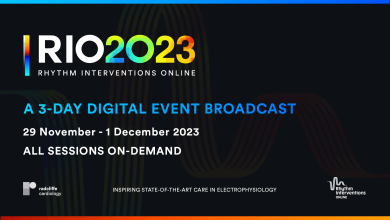In This Section:
Stroke Prevention in Atrial Fibrillation
Despite the evidence-based guidelines for the management of atrial fibrillation (AF), serious gaps continue to exist between clinical knowledge and practice, leaving patients at risk for disabling strokes. It is estimated that up to 67% of AF-related strokes are preventable. The significant increase in mortality and functional impairment is even more alarming, compared to non-AF strokes.
Updated AF treatment guidelines recommend new oral anticoagulants (NOACs) over warfarin for stroke prevention except, in patients with moderate to severe mitral stenosis or a mechanical heart valve. Based on some recent trials, NOACs were superior to warfarin for the prevention of the composite of stroke and systemic embolism in patients with AF and an additional risk factor for stroke. Reversal agents are now also available for NOACs in patients for severe bleeding or emergency procedures.
With the increased utilization of NOACs, it is critical for the clinician to understand the clinical and practical usage of these agents in diverse patient populations and clinical situations.


















